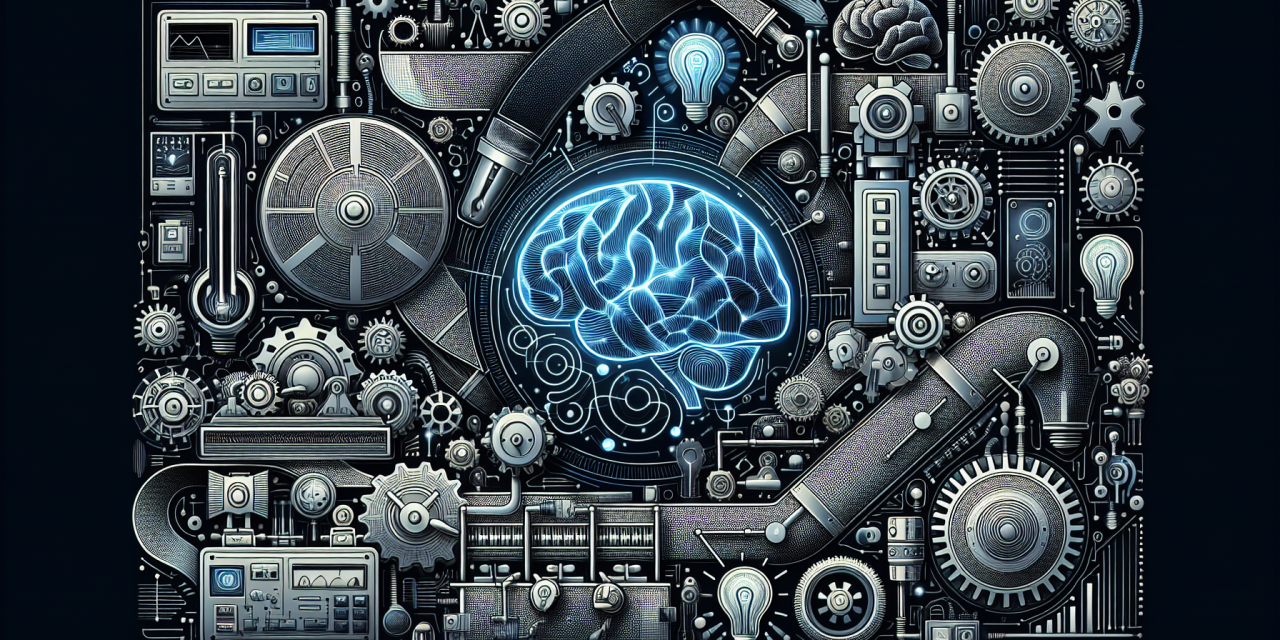Table of Contents
- Introduction
- What is Industrial Instrumentation?
- Modern Control Systems: An Overview
- Why Conferences Matter in Instrumentation
- Highlights of the Industrial Instrumentation & Control Systems Conference
- Networking Opportunities
- Future Trends in Industrial Instrumentation
- FAQs
- Conclusion
Introduction
When it comes to the world of manufacturing and process control, few events capture the forefront of innovation quite like the Industrial Instrumentation & Control Systems Conference. This engaging gathering draws professionals from diverse sectors to share insights, explore cutting-edge technologies, and discuss the future landscape of industrial instrumentation and control systems.
What is Industrial Instrumentation?
Industrial instrumentation comprises tools and devices designed to monitor and control industrial processes. Ranging from temperature and pressure sensors to advanced data acquisition systems, these instruments play a crucial role in ensuring smooth operations, safety, and efficiency in various industries.
For instance, effective management of fluid flow control systems is vital for operational integrity in the process industry. To delve deeper into these dynamics, you might explore resources like the article on Unveiling the Dynamics of Fluid Flow Control Systems in the Process Industry.
Modern Control Systems: An Overview
Modern control systems integrate advanced technology such as PLCs (Programmable Logic Controllers), SCADA (Supervisory Control and Data Acquisition), and IoT (Internet of Things) devices to provide precise control and monitoring capabilities. As a result, industries can achieve higher levels of automation and efficiency.
Key Components of Modern Control Systems
- Sensors: Essential for gathering data from operations.
- Controllers: Devices that process data and send commands to the actuators.
- Actuators: Mechanisms that carry out control actions based on commands from the controller.
- User Interfaces: Allow operators to interact with the system and make necessary adjustments.
Why Conferences Matter in Instrumentation
Industry conferences serve as vital platforms for professionals to exchange knowledge and ideas. In particular, they:
- Facilitate Networking: Conferences bring together like-minded individuals, thus enabling attendees to build valuable professional relationships.
- Showcase Innovations: Exhibitors often unveil cutting-edge technologies that can transform processes and operational capabilities.
- Provide Expert Insights: Keynote speakers and panel discussions deepen understanding of current trends and future challenges.
Highlights of the Industrial Instrumentation & Control Systems Conference
The conference features several engaging activities, including:
Workshops and Technical Sessions
Hands-on workshops allow attendees to gain practical experience with state-of-the-art tools and technologies.
Panel Discussions
Thought-provoking discussions led by industry experts focus on trending topics and challenges in the field.
Networking Events
Casual meet-and-greet sessions enable professionals to connect and discuss potential collaborations.
Networking Opportunities
Networking plays a fundamental role during the conference. From structured networking events to informal gatherings, attendees have numerous opportunities to connect with industry leaders, innovators, and peers.
By engaging in conversations, participants often discover potential partnerships or clients that can significantly enhance their business profiles.
Future Trends in Industrial Instrumentation
Looking ahead, several trends appear significant:
Increased Automation
As industries strive for efficiency, automation will continue to rise, leading to advancements in control systems.
Integration of AI and ML
Artificial Intelligence (AI) and Machine Learning (ML) are increasingly becoming essential elements of industrial instrumentation, enhancing predictive maintenance and process optimization.
Emphasis on Sustainability
With the global shift towards sustainability, instrumentation will also need to adapt, focusing on energy-efficient solutions.
Data Analytics and Real-Time Monitoring
By harnessing data analytics, organizations will refine their operations and improve decision-making processes significantly.
FAQs
1. Who should attend the Industrial Instrumentation and Control Systems Conference?
This conference is ideal for engineers, technicians, researchers, business leaders, and anyone interested in the future of industrial processes.
2. What topics are typically covered at the conference?
Topics often include advancements in instrumentation, control systems, automation technologies, and industry best practices.
3. How can I network effectively at the conference?
Make use of breakout sessions, mingle during breaks, and participate in organized networking events to meet individuals of interest.
4. Are there workshops available?
Yes! The conference provides hands-on workshops where participants can learn about new technologies and skills.
5. Will there be opportunities to discuss sustainability?
Absolutely! Sustainability is a growing focus within the industry, and discussions regarding its implications for industrial instrumentation will be prominent.
Conclusion
In conclusion, the Industrial Instrumentation & Control Systems Conference is an essential event for those involved in industrial processes. It offers invaluable opportunities to learn from industry leaders, network with peers, and explore the future of instrumentation and control systems. Attending such conferences not only enhances professional growth but also contributes to the advancement of the industry. Embrace the chance to discover emerging trends, methodologies, and tools that can empower your career and business.





